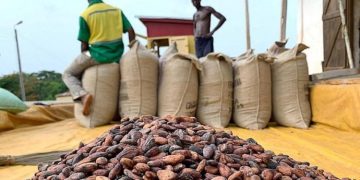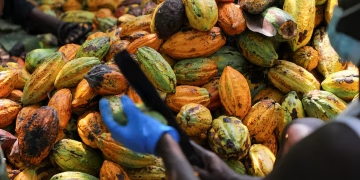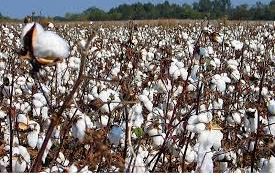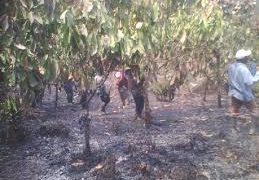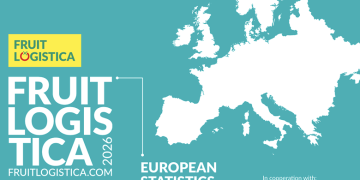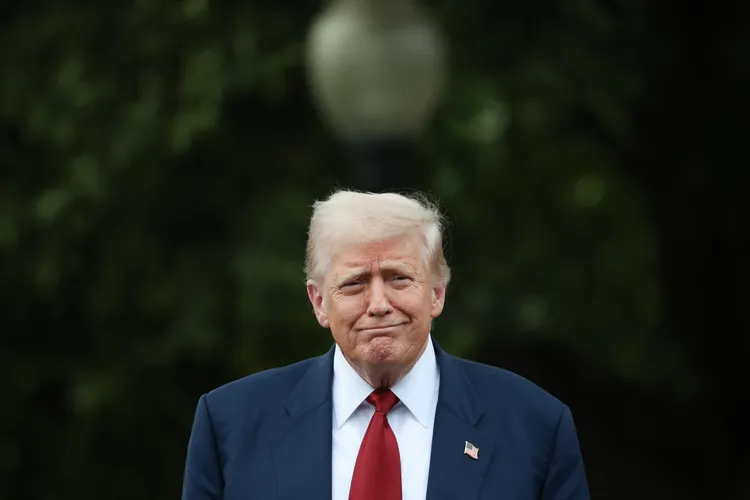President Donald Trump on Friday signed an executive order to exempt a slate of agricultural products not produced in the United States from his reciprocal tariffs and adopted more carveouts for fertilizer.
The exclusions apply to a slate of imported ag products, including certain beef products, coffee, tropical fruits, certain nuts, cocoa powder, tea, spices, coconuts and certain tomato products and are effective retroactively from Thursday.
“This is primarily food and agriculture products that we simply don’t make in the United States,” Greer told Agri-Pulse and other reporters at the White House Friday morning.
The exemptions also expand the list of fertilizers exempted from the tariffs to include urea and phosphate fertilizers, among others. Potash, certain herbicides and pesticides, and some veterinary products were already exempt from the sweeping duties.
Explaining the decision, Greer said the administration had reached a “critical mass” with the trade deals inked so far and has “started to reshape the global trade system in a way that we could do better for America.”
Agri-Pulse first reported over the summer that USTR was spearheading an effort to compile a list of products that the U.S. does not grow domestically for potential tariff relief.
On Sept. 5, the White House published a list of products it would consider for tariff adjustments for “aligned partners,” which formed the basis of the exemptions, Greer said.
Further, several farm-state Republicans had been pushing for targeted tariff relief for farm inputs, including fertilizer. During a closed-door meeting between Republican senators and Greer last month, at least one ag state lawmaker asked the USTR to lift tariffs on inputs like fertilizer, Agri-Pulse reported at the time.
Greer also suggested that the plan had always been to exempt some of these products from the president’s reciprocal duties imposed in April.
“The president already on April 2 had some idea,” Greer said. The spate of recent deal announcements — including those with four Latin American countries and several Southeast Asian nations unveiled last month — meant “now is the right time to release some of these items,” Greer added.
Democrats, however, argue that the administration’s decision to exempt some ag products from the tariffs is a tacit admission that the reciprocal duties are driving domestic prices higher.
“Donald Trump has finally admitted that his tariffs are forcing Americans to pay more for groceries and making the affordability crisis worse,” Senate Finance Committee Ranking Member Ron Wyden, D-Ore., said in a statement Friday.
“Even if he lifts his taxes on a few products this week, American consumers, farmers, and small businesses will be paying more for essential goods for as long as he’s in office and Republicans refuse to do their job and end the tariffs,” he added.
Scott Lincicome, vice president of economics at the Cato Institute’s trade policy program, also framed the tariff reductions as an attempt to undo self-inflicted economic damage.
“The administration imposed these same tariffs just months ago, insisting they would not raise consumer prices,” Lincicome said in an emailed statement. The Cato Institute is a libertarian think tank that has been supportive of free markets and limited government.
“The best course of action here — for consumers, companies, the US economy, and the world — is for the administration to eliminate all of these tariffs,” Lincicome said, “instead of sporadically nixing a few of the most politically sensitive ones because economic reality dared to intrude on their misguided trade adventurism.”
Food importers, however, welcomed the move for its cost-cutting potential and encouraged the administration to look at other areas for potential tariff reductions where domestic production alone cannot keep pace with consumer demand.
“[I]t is imperative that we continue to assess other types of critical inputs that are not readily available in the U.S., like palm oil,” Consumer Brands President and CEO Melissa Hockstad said in a statement. Tin mill steel used in can production should also get a carveout, she added.
The International Fresh Produce Association praised the decision to exempt certain fruits and vegetables from the duties, particularly those that cannot be produced in sufficient quantities year round to meet U.S. demand. But the group said similar exemptions should be extended to floral products.
Meanwhile, Leslie Sarasin, president and CEO at the Food Industry Association, called the move a “critical step” for keeping U.S. food prices in check.
Source: agriculture.com














